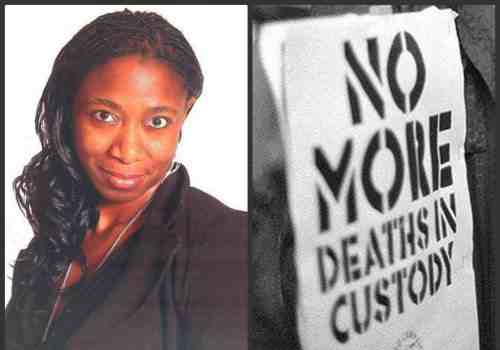

The independent panel charged with reviewing mental health policing has considerable knowledge and experience. But the absence of specialist expertise on the issue of black deaths in custody is of grave concern, writes Matilda MacAttram, director of Black Mental Health UK.
One of the continuing factors undermining confidence in British policing is the ongoing controversy of deaths in custody, particularly those of black men with experience of mental health issues.
A number of high profile cases of mental health service users who have died after contact with the police have raised public and parliamentary disquiet. There is a very clear continued public interest in the circumstances surrounding the death of Sean Rigg, who died while in police custody in 2008. Rigg had a diagnosis of schizophrenia.
Last year’s inquest into Rigg’s death, which found that the police had used unsuitable force, was undoubtedly the catalyst for the Metropolitan Police setting up the new Independent Commission on Policing and Mental Health.
The panel, which is chaired by Lord Victor Adebowale and includes a number of experts, including The College of Social Work’s Ruth Allen, has considerable mental health expertise. But there is a glaring omission of anyone with specialist knowledge and history of work on deaths following police contact.
The fact that not one of the commission’s panel members has, to our knowledge, previously worked on or spoken out about the issue of black deaths in custody is of grave concern.
Why? Well, for people from the UK’s African Caribbean communities, deaths in custody and mental health care are sadly inextricably linked.
The textbook failings highlighted in the Sean Rigg case are sadly not uncommon in the way black people with mental health problems are treated when they come in contact with the police.
This is borne out by data from the Independent Police Complaints Commission (IPCC), which shows that people who use mental health services account for 50% of those who lose their lives in police custody. People from the UK’s African Caribbean communities are over represented in this group.
Figures from the Ministerial Independent Advisory Panel on Deaths in Custody show that people detained under the Mental Health Act account for 60% of those who lose their lives while in the care of the state. Data compiled by the charity Inquest found that ethnic minorities accounted for 38% of those who died in police custody following the use of force.
The fact the commission is only examining cases from the last five years is also of concern. Black Briton deaths in custody, like mental health issues among this group, have been high on the agenda for a number of decades. Restricting the commission’s remit to such a time scale excludes critical learning from a significant number of high profile cases.
The expertise from the policy, parliamentary and campaigns work that has been accumulated by agencies from the community working in this field goes back decades.
Campaigners, including Black Mental Health UK, have been invited to give evidence to the commission. But handing over evidence, with no way of determining how it will be used, offers significantly less scope for steering this commission’s work than having a voice on the panel would have done.
The Sean Rigg Rule 43 report – the report issued by coroners on learning to prevent further deaths – identifies critical learning in relation to South London and Maudsley NHS Mental Health Trust and the Metropolitan Police Service that would apply equally in many parts of the UK. This, we believe, should be the starting point for this commission.
However, without the expertise of those from the community with a background in black deaths in custody, this review may fail to address the serious issues about policing and mental health that have emerged from previous deaths, particularly around the over use of force and restraint. There is a real risk of this commission being viewed as nothing more than a cosmetic exercise.
Related articles:
- Social work is vital to my review of mental health policing: Adebowale
- Social workers must seize this chance to improve mental health policing
Picture credit: Black Mental Health UK
See also:
Why are some mentally ill patients treated like criminals? Posted on June 3, 2011
NHS accused over deaths of disabled patients Posted on January 3, 2012
Mental health patients are being ‘detained in all but name’ Posted on January 31, 2013
Black Mental Health BMH UK launches The Solution magazine Posted on September 30, 2011
